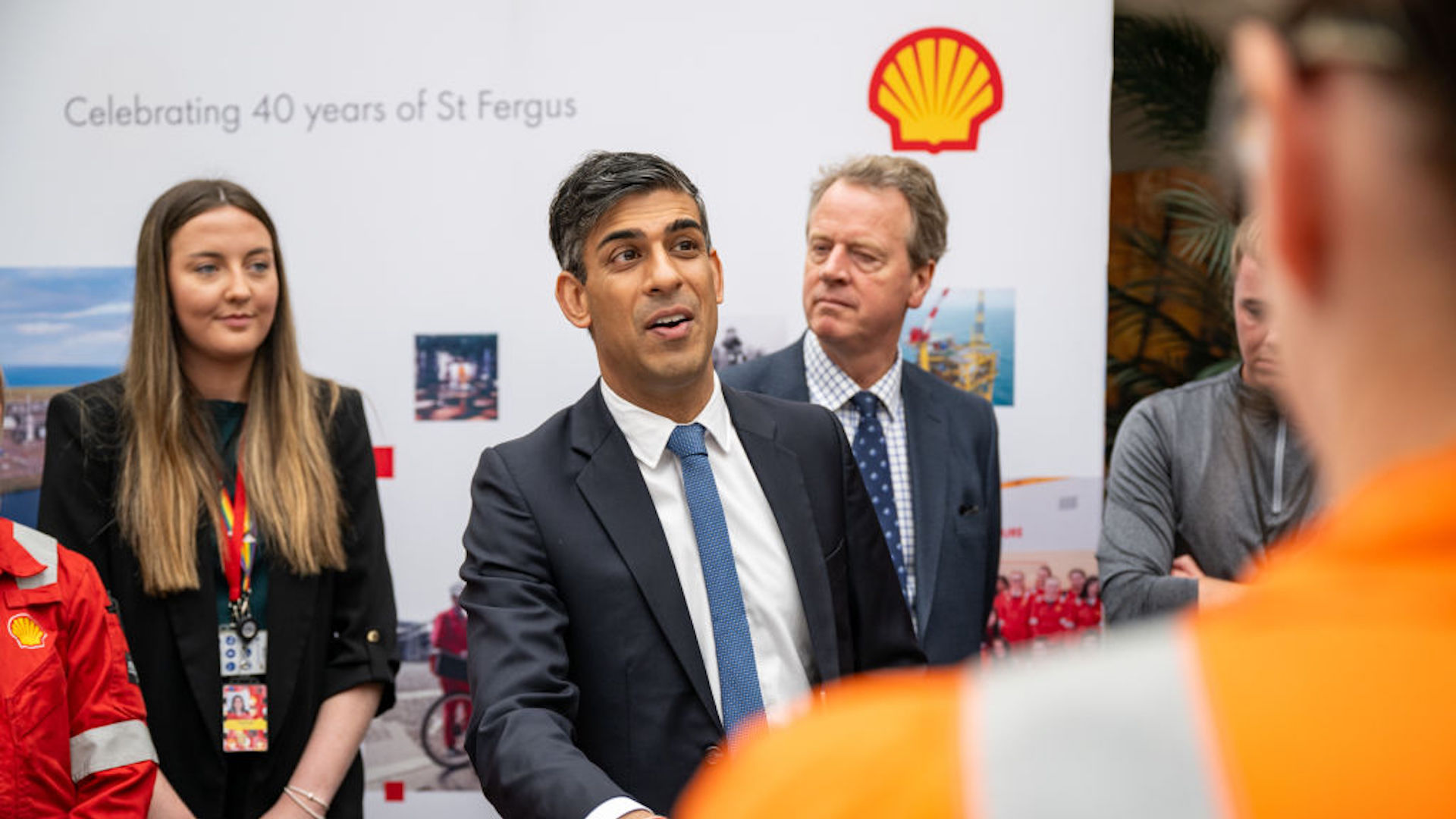As Rishi Sunak posed for an awkwardly choreographed photo-op in Margaret Thatcher’s old car this week, it became clear that the next election will be fought on an American-style culture-war platform of targeted nostalgia and straw men. The announcement of new oil and gas licences just a fortnight after the world experienced its hottest week on record is all part of the game.
With little else left in the tank and the polls looking bleak, Sunak and his political advisers have decided that their best chance of avoiding electoral meltdown is to set up a false dichotomy between jobs, cars and petro-freedom on the one hand, and an imagined unholy alliance of Labour and radical green activists on the other. The tragedy is that Sunak has another set of advisers at his disposal who are world experts in climate change, yet he seems unable and unwilling to listen to them on the most serious issue of all.
UK prime ministers have a habit of visiting Scotland’s oil heartlands when it is expedient for them to do so. David Cameron was the first PM to visit Shetland in 34 years when he jetted in to talk about the islands’ special place in the UK during the 2014 independence referendum. Margaret Thatcher herself had travelled to Shetland the year after she took office to visit its huge oil terminal at Sullom Voe, and today Rishi Sunak was in Aberdeen to do similar.
Sunak may be intent on tapping into the ideals and aesthetics of high Thatcherism, but it is no longer 1990. The globe now kicks out almost double the amount of carbon each year as it did when Thatcher left office and the UN was beginning to assemble leading global scientists to monitor climate change. The numbers for further oil extraction simply do not add up, and another record summer shows that climate change is not something we can export and forget about. Rosebank – the huge new oil field west of Shetland the UK government wants to open up – is in an area that this year has suffered a marine heatwave pushing ocean temperatures to unprecedented highs. The idea Britain is somehow safe from the impacts of climate change is demonstrably untrue.
Oil has indeed been good to some parts of Scotland and has compensated for a lack of investment from London and Edinburgh, but six decades of extraction have not left the country as a whole in good shape. Throughout the 1980s, the tax receipts from North Sea oil helped to pay for rising unemployment rather than being ploughed back into northern Britain’s quickly deindustrialising cities, tipping the UK as a whole towards an overreliance on the City of London, finance and the service sector.
One of the ironies of the Rosebank project is that it is run by Equinor, Norway’s state oil company. The UK will take a portion of profits in tax, but the rest will end up paying for Norwegian hospitals and public services rather than Scottish and British ones. In Aberdeen, nominally the biggest beneficiary of the UK oil and gas industry, the council has been closing libraries and slashing public services whilst energy companies make record profits.









